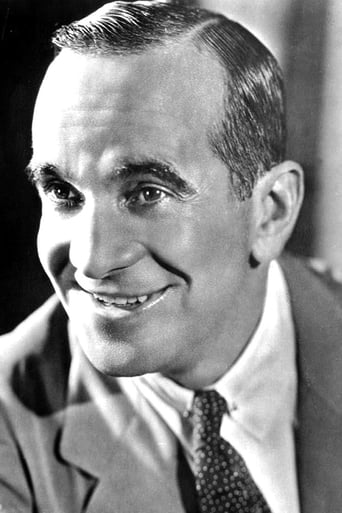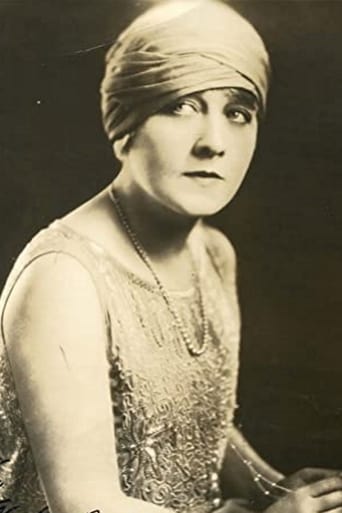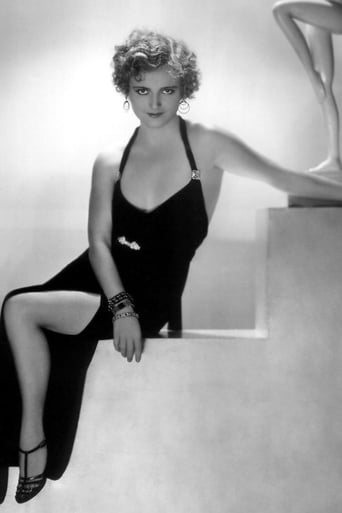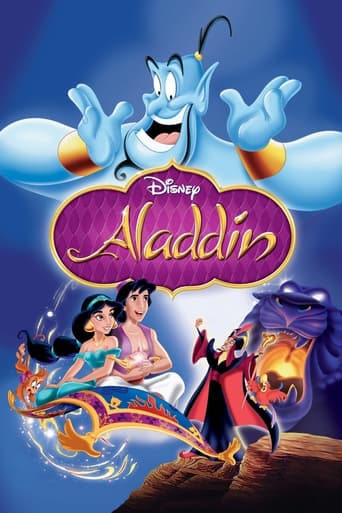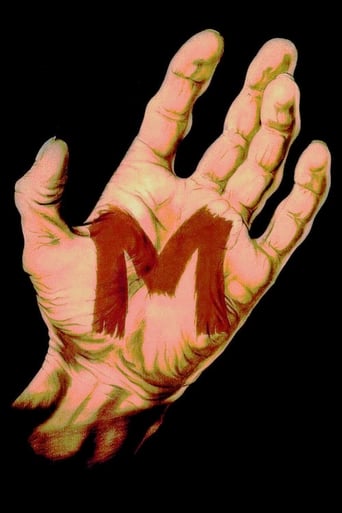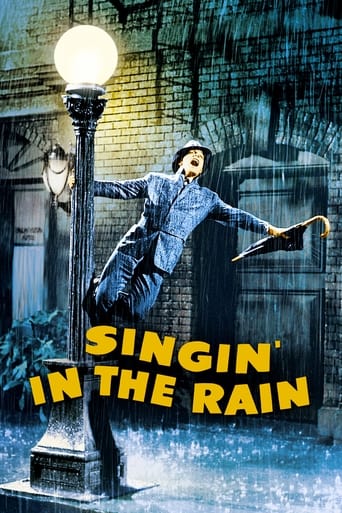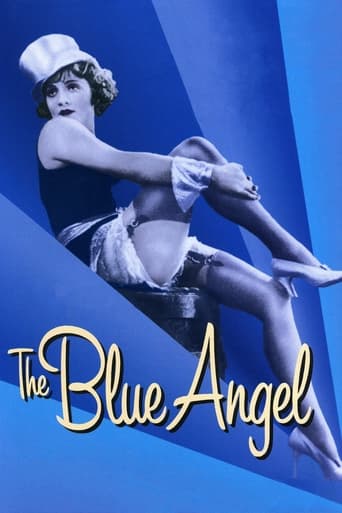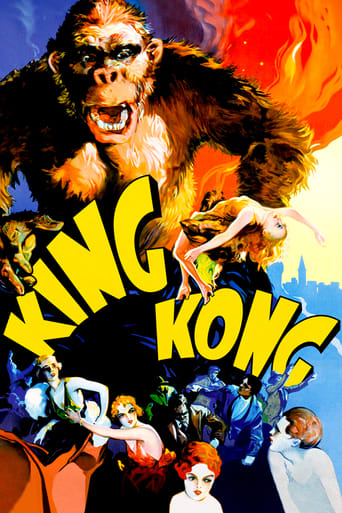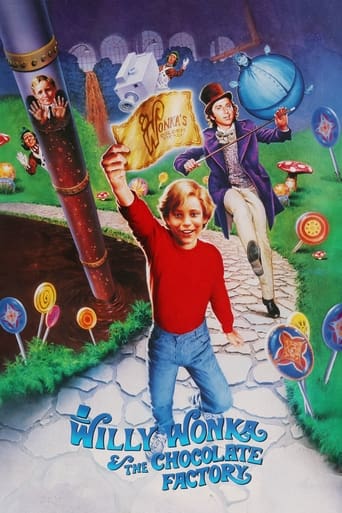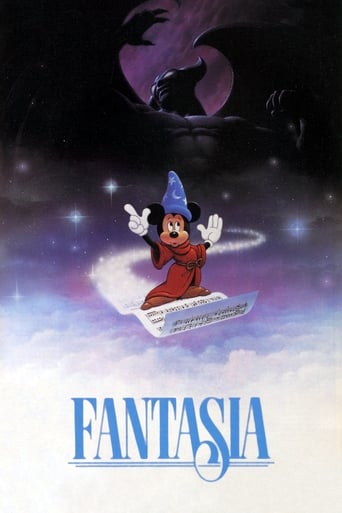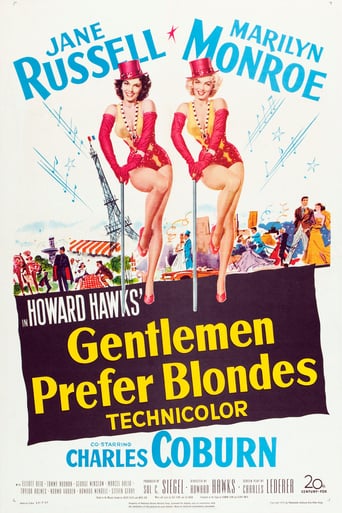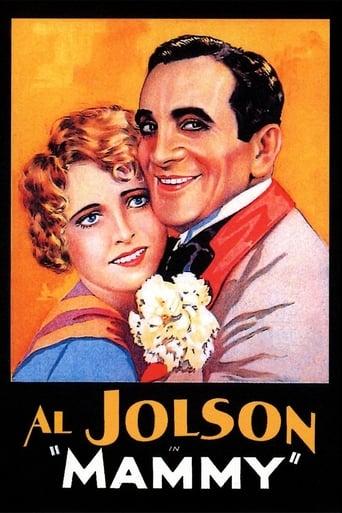

Mammy (1930)
Mammy features Al Jolson as the star of a travelling minstrel show, appearing in a small Southern town. Jolson falls in love with an actress in the troupe (Lois Moran), but she loves another. One of Jolson's fellow minstrels (Lowell Sherman) is shot backstage, and it is assumed thanks to several plot convolutions that Jolson is guilty of the deed.
Watch Trailer
Cast


Similar titles
Reviews
Save your money for something good and enjoyable
In truth, there is barely enough story here to make a film.
There's no way I can possibly love it entirely but I just think its ridiculously bad, but enjoyable at the same time.
The movie's neither hopeful in contrived ways, nor hopeless in different contrived ways. Somehow it manages to be wonderful
'Mammy' did have at least three things going for it.There is the presence of Al Jolson, a great entertainer with a terrific voice. It has music penned by one of the greatest song-writers of all time Irving Berlin. And it was directed by Michael Curtiz, who directed favourites such as 'Casablanca', 'The Adventures of Robin Hood' and 'White Christmas'.It is interesting to watch now, and is certainly not a bad film. However it is very easy to see why people will have, and have had, issues with it. Things work very well, but there are parts that have aged badly and make modern viewers cringe while still somewhat appreciating what the film tries to do.Best things about it are Jolson and especially Berlin's music. Jolson is restrained but still electrifying, he also sounds great and puts his all into the songs. While not among his best ever song scores, the songs are still terrific, with a lot of energy and emotion, clever lyrics and they are gorgeously melodious too so Berlin's talent as a composer/song-writer is more than evident here. Most of the musical numbers are well staged, Jolson's musical scenes work very well and while the minstrel scenes don't work on the whole "Yes I Have No Bananas" is quite fun.With that being said, the supporting cast are also competent, with an entertaining Lowell Sherman, Hobart Bosworth and a restrained, dignified and sympathetic Louise Dresser coming out on top. Lois Moran has a thankless and underwritten role but brings some charm to it. 'Mammy' still looks good, with lovely 2 strip Technicolor in two scenes and the black and white for the rest of the film looking remarkably crisp. Much of the film has a good deal of energy, and there are a few amusing parts.Other things don't come off so well. Some of the story is silly and drags in spots, while the mother and son relationship sees Jolson and Dresser behave in a way that is much more suited to a pair of lovers than mother and son and it just doesn't feel right and most of the comedy falls flat because of being overly corny, very of the time and flat in timing.As for the minstrel scenes, they were acceptable back in 1930 but while historically interesting somewhat they don't hold up very well now. They do go on too long, are not for the easily offended and how most of them are written and staged will make a lot of people cringe and reach for the fast forward button (personally was tempted). Curtiz's direction is not as inspired as in the best of his films and like his heart wasn't completely in it.Concluding this review, an interesting film that is worth watching for Jolson's performance and Berlin's music but it's a wildly uneven film where some parts just don't hold up very well. 6/10 Bethany Cox
Mammy (1930) ** (out of 4) Al Fuller (Al Jolson) is an entertainer in a minstrel show who just happens to be in love with a woman (Lois Moran) who can't have him because she's in love with another performer (Lowell Sherman). During the act there's a sequence where Fuller must shoot the "other man" but after doing so this night a real bullet comes out. Fuller runs off to his mother who tells him he should go back and face the music. Fans of Al Jolson swear up and down that the entertainer doesn't get the credit he deserves today because of the fact that he appeared in blackface. The actor will always be remembered by film buffs for THE JAZZ SINGER but I'm going to go against some of the fans and say that he's not better remembered today not due to the blackface but because of the fact that his movies simply aren't that good. MAMMY is the perfect example of this. The performances are bad. The story is downright silly. The talking sequences are all rather lame but this can be blamed on the technology of the time. Curtiz, one of the greatest directors from the Golden Age of Hollywood, is absent throughout much of the running time. We can start with the story as it's just downright silly and it's easy to say that not much time was spent on it as the studio was clearly more worried about the music. That's understandable so we can let the bad story slide. Curtiz' direction really doesn't bring any of the material to life and just check out how poorly shot the opening sequence is in the rain. The other minstrel show stuff will probably offend most people but I've seen enough movies and know enough about history to realize that this type of thing was accepted in 1930. Still, seeing a bunch of actors in blackface singing "Yes! We Have No Bananas" is probably going to be too much. The music numbers are the only thing that makes this worth viewing as there's no question that Jolson has a terrific voice and it can be heard in some great songs including "Yes, Sir, That's My Baby," "Mammy," "In the Morning," and several others. Jolson does his best to keep the energy going but he's given some pretty poor dialogue including some really lame jokes. The supporting players don't help too much either but then again the screenplay isn't doing them any favors. MAMMY is probably best known for the two sequences shot in 2-strip Technicolor. The picture quality today is quite rough but at the same time I was rather shocked at how incredibly bad the blackface looked in color. It looks like they would have done some more tests because just take a look at it during the first color number.
If Mammy is remembered for anything it is for providing Al Jolson with one of his biggest song hits, definitely the biggest song hit he had written especially for the screen. Irving Berlin wrote this number for Jolson and he does it three times in his usual bravura style and on two of those occasions without black-face.Al Jolson got his start in minstrel shows which were still popular at the turn of the 20th century. He's Al Fuller in this show, lead singer in this troupe and a man with a case of unrequited love for the owner of the show. From there springs the plot.It's unfortunate for Jolson's current reputation that he did not abandon the black-face which was a carryover from his minstrel days. It's considered offensive now and rightly so. But listen to him sing Let Me Sing and I'm Happy and the rest of the score and you're hearing one of the great song stylists ever.Irving Berlin wrote some original material for this film which was interpolated with some other standards. It is also good to hear Jolson do two of his comedy numbers, Who Paid the Rent for Mrs. Rip Van Winkle and Why Do They All Take the Night Boat to Albany. It's his ballads that he's remembered for today, but these numbers give you an idea of more of the kind of material he did on stage.A lot of people will be rightly offended in seeing Mammy now, but like Bing Crosby's Dixie, it's an interesting piece of cinema history.
MAMMY (Warner Brothers, 1930), directed by Michael Curtiz, became Al Jolson's fourth feature, following earlier screen efforts as "The Jazz Singer" (1927), "The Singing Fool" (1928) and "Say It With Songs" (1929). Although not one of the best in the Jolson series, the movie somewhat hits home to Jolson's early years as a minstrel man. With the songs by Irving Berlin, he is also credited with its story idea titled "Mr. Bones." Al Jolson stars as Al Fuller, the lead singer of a minstrel show. He is hopelessly in love with Nora Meadows (Lois Moran), the daughter of the minstrel manager (Hobart Bosworth), but her real interest is in Billy West (Lowell Sherman), the interlocutor who ignores her so he can keep his eyes on other women. One night during a comedy act, Al, who is to "shoot" Westy at the close of the skit, finds Westly on the floor unconscious, and soon realizes that someone had placed real bullets in his gun. Following the performance, Al is arrested for attempted murder. When the police wagon that's carrying Al turns over, Al escapes. Bumming around in freight trains and eluding the law, he decides to pay his mother (Louise Dresser) her long-awaited visit. Knowing that something is wrong with her son, Mrs. Fuller doesn't let on, but she does gives Al her motherly advice in saying, "If anyone says anything against you, son, always MAKE THEM PROVE IT." Knowing that he is innocent of the shooting, Al decides to take her advice and go back to face the music, but when he does, he finds a different tune awaiting him.Music and lyrics by Irving Berlin include: "Let Me Sing and I'm Happy," "Here We Are," "Who Paid the Rent for Mrs. Rip Van Winkle?" "The Knights of the Road," "Yes, We Have No Bananas" (by Frank Silver and Irving Cohn); Guiseppi Verdi's "Miserere" from Il TROVATORE; "Looking At You Across the Breakfast Table," "Here We Are" (reprise); "In the Morning," "Why Do We Take the Night Boat to Albany?" "Swanee River" (by Stephen Foster); "Let Me Sing and I'm Happy" (reprise); "To My Mammy" (sung by Jolson to Louise Dresser); and "Let Me Sing and I'm Happy" (closing number). Of all the songs presented here, "Let Me Sing and I'm Happy" comes off best, sung three times by Jolson, each in a different style.Originally filmed in early Technicolor, existing prints today are shown in black and white. Storyline is passable, but does have its slow points, one in which Jolson's purposely stutters to a visiting sheriff (Jack Curtis) so to give the theater troupe time to take off on a train, only to learn that the sheriff isn't there to arrest anybody, but to join the company; and another when Jolson gets drunk, a scene that appears longer than what it is. Jolson's acting hasn't improved much dramatically but succeeds in perking up the plot with his energetic singing. Also featured in the cast are Tully Marshall as Slats, Al's tag-along hobo he befriends in a freight car during his escape from the law; Stanley Fields and Mitchell Lewis, among others.Due to the controversy of the movie, mainly because of it lengthy minstrel show routines, "Mammy" is a rarity on TV, or anywhere for that matter. Currently available on video cassette, it can also be seen sporadically on late night cable television's Turner Classic Movies.(**)


